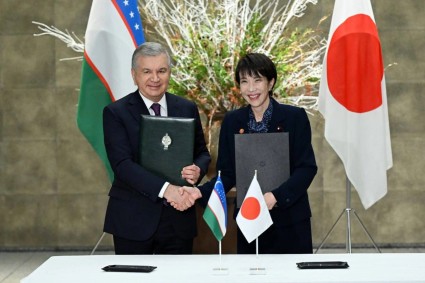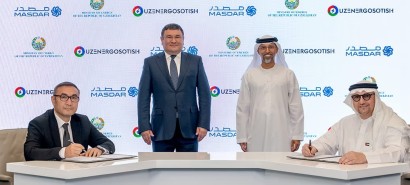Agriculture ministers of Central Asian countries held an online meeting on Wednesday and discussed the ways to enhance the efficiency and environmental friendliness of the agricultural sector, the UN News Service said.
The sixth meeting was hosted by the Ministry of Agriculture of Uzbekistan and the Food and Agriculture Organization of the United Nations (FAO).
Reportedly, in the past three decades, the growth of agricultural productivity in the countries of the region has remained slow, despite the abundance and diversity of land resources, the meeting said.
“With a sustainable approach, increased agricultural productivity can lead to increased food and nutrition security in Central Asia,” said Vladimir Rakhmanin, FAO Regional Representative for Europe and Central Asia.
The agricultural sector is responsible not only for food production, but also provides employment for a significant part of the population of the countries of the region.
“Sustainable functioning and development of agriculture requires significant financial investments and investments, both from internal and external sources,” said Uzbek Minister of Agriculture Aziz Voitov.
“Without them, it is impossible to introduce expensive modern technologies and innovative methods that increase productivity and save resources. In addition, it is important to simultaneously develop social and economic infrastructure in rural areas and invest significant resources in the growth of human potential and the competence of farmers,” he added.
Achieving higher agricultural growth requires farmers to invest in new technologies, inputs, agricultural equipment, and modern livestock breeding methods. Ministers discussed innovative financing schemes to promote development that improves biodiversity, soil fertility and water use efficiency.
The participants of the meeting also exchanged information on proven modern approaches to the distribution of public funds to achieve the maximum effect in stimulating agricultural growth. These include investment in infrastructure (roads, irrigation systems), promotion of agricultural research and education, and better management of natural resources. In addition, changes in tax schemes, direct and indirect subsidies, tariffs and import quotas may also affect the development of the agricultural sector.
According to the Ministry of Agriculture of Uzbekistan, the contribution of the agricultural sector to GDP last year was at 25%. The sector employs about 3.6 million people. 49% of the country's population lives in rural areas. Currently, 70% of Uzbekistan's food products are produced by private farms.















